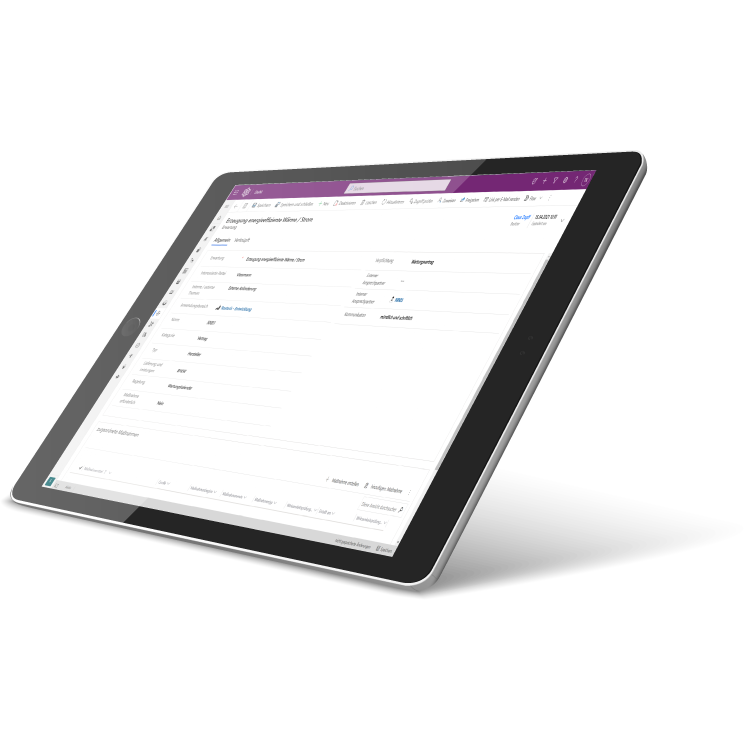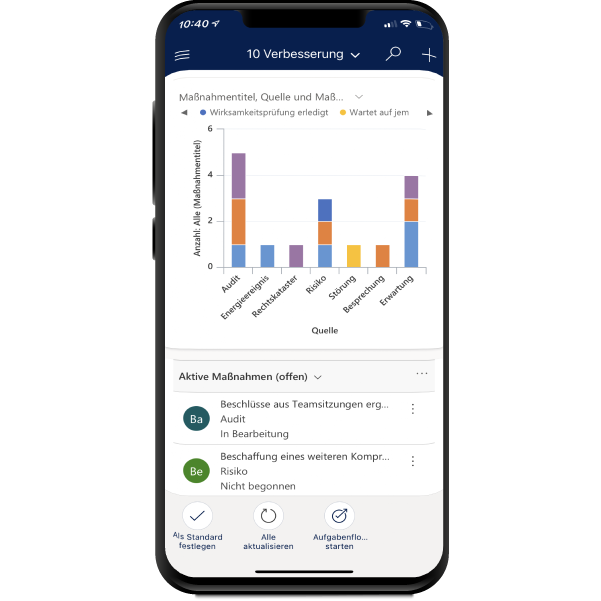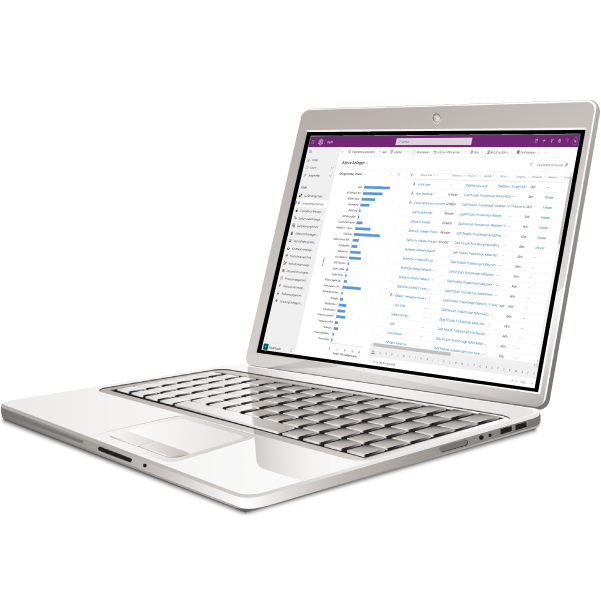Asset
Failure
Maintenance
Document
Asset Management – Smooth operation and efficient troubleshooting
Maintenance and asset management is of central importance for the value creation of the company.
The DaIM function supports all asset management processes over the entire life cycle of an asset. With asset management, all relevant aspects and risk factors are captured and form the starting point for HSE-specific functions.

Highlights
- Determine criticality of assets
- Capture technical asset data
- Store technical documentation for specific assets
- Visualized asset hierarchies
- Location and process reference of assets
- Clearly define asset responsibilities
- Traceable archiving of asset history
- Process-controlled failure management
- Maintenance calendar
- Assignment of measuring equipment and data to assets
- Export / import of asset databases and lists
- Energetic evaluation of consumers
Asset
The hierarchically structured asset and asset management is the central pivot in the management system. All technical & organizational parameters of an asset are recorded in it and form the starting point for the evaluation of risks, environmental, safety or energy aspects.
Failure
Failure messages for assets can be generated manually or via IoT devices and assigned to the responsible employees. Automatic failure statistics are available at any time. Failure documentation (incl. photo documentation) is done mobile on site or conveniently at the workplace. Service teams work directly in the management system.
Maintenance
Maintenance activities to increase asset availability and safety are planned in the maintenance calendar. Deadlines and legal requirements are taken into account on a asset-specific basis. Maintenance orders are generated from DaIM and reported back directly in the system.
Document
The document management system integrated in DaIM meets all requirements for managing documented information. Editing and filing of all documents is done directly via the app or Microsoft Teams. Technical documentation including manuals, operating instructions, data sheets and manufacturer documents are available digitally in the asset file.
The core components of DaIM
App
A central app for communication and collaboration in Microsoft Teams. With the data-based implementation of all standard requirements, processing is possible anytime and anywhere.
Documents & Processes
Securely edit documented information and processes efficiently, approve and authorize effectively, and keep them linked to the DaIM App's protected data.
Connector
Efficient handling of existing data by connecting data sources based on hundreds of proven data connectors. Deep insights by integrating all relevant data from the enterprise across all standards.
Review
Real-time management review at the click of a mouse. Minimize the effort for recurring evaluations. Compare the results of your management reviews.
Digital Auditor & AI
AI is not only about certification readiness of your management systems, but also about changing the way your employees work. With the Digital Auditor and the Improvement Engine you transfer your management system approach into the digital age.
Audit Mining
Real-time management review at the click of a mouse. Minimize the effort for recurring evaluations. Compare the results of your management reviews.
Innovative Technologies
The functional fusion of leading collaboration tools makes DaIM unique and the most advanced management system in the world today.
Functions
Asset management
Complex asset management over the entire life cycle
Audit management
Planning, execution and reporting from a single source
Compliance management
Binding obligations and material evidence at a glance
Document management
Collaborative work and database-supported management of electronic documents
Incident management
Intuitive recording and seamless tracking of events
Hazardous materials management
Safe handling of hazardous materials through systematic processes
Maintenance management
Preventing malfunctions through efficient maintenance
Key figure management
Flexible key figure system for monitoring business processes
Context management
Identifying and anticipating the expectations of interested parties
Measures management
Centralized control of corrective and preventive measures from all sources
Means of measurement management
Mapping of means of measurement hierarchies and maintenance of means of measurement capability
Process management
Identification, visualization, documentation, control and optimization of business processes
Resource Management
Organization of competencies, authorities and tasks for management teams
Risk management
Monitoring opportunities and risks in an intelligent way
Training management
Demand-driven training organization and record keeping
Scopemanagement
Clearly define scopes and exclusions through transparent scoping

